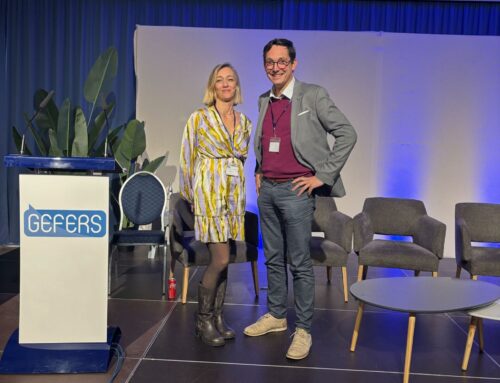Careboard: AI for workload forecasting
The health crisis has highlighted the need for solutions to better manage carers’ workloads. Artificial intelligence (AI) offers promising prospects in this respect, and the Careboard software is a concrete illustration of this.
Careboard is a software application that has been in use in hospitals since 2016. Its aim is to predict nursing activity and help managers to better manage their teams :
- a quantitative approach based on statistical analysis
- a qualitative approach based on the feelings of the field teams.
Our solution is part of the support for nursing executives and mobile team management. It aims to support the human element, but never to replace it, in the decision-making process.
“The next step is to anticipate the workload as reliably as possible. In fact, we are currently testing a forecasting module in a hospital.” Xavier Rouby, CEO of Opal Solutions
Valuable predictive support for nursing managers
Indeed, this forecasting module is effective “in normal times”. In the future, it is necessary to go a step further to respond at any time to urgent or unexpected situations such as natural disasters, attacks or pandemics (read our article: Presentation of the COVID-19 module on Careboard).
Artificial Intelligence (AI) will allow in the near future to make realistic predictions that instantly adapt to the situation on the ground by interpreting the data provided by humans. It is therefore time to develop it as soon as possible.
AI for greater adaptability
AI offers unlimited possibilities. However, just like human intelligence, it first needs to learn to develop and realize its full potential. We’ve been building the machine’s adaptive capabilities with the help of the field feedback we’ve been collecting since Careboard’s inception.
Using algorithms, the AI discovers patterns in the available data and modifies itself as it ingests new elements. It adjusts itself based on the information it receives, in the same way that a child learns from its experiences.
Development in collaboration with local partners
Our AI will be tested with data from partner hospitals that have decided to contribute to its development.
Other actors are accompanying us in this project such as DigitalWallonia4.ai whose main objective is to accelerate the adoption of AI in Wallonia.
The data analysis will be done in collaboration with DNAlytics, a technology consulting company that develops innovative data-driven healthcare solutions. They are known for being tasked with illustrating what’s behind the COVID numbers to combat its spread.
In conclusion, artificial intelligence and tools such as Careboard offer real potential for improving the management of healthcare workers’ workloads. This is an essential asset for guaranteeing better patient follow-up and more relaxed working conditions for medical teams.



